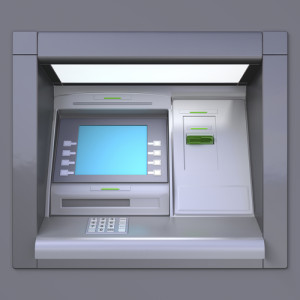
Taughannock Falls overlook is free to all. Photo from VisitIthaca.com
This concludes our four-part series containing 50 tips about How to Travel Cheaply. In today’s guest post, Jesse Miller looks at how you can save money on sightseeing and entertainment, how to manage your money while traveling, and adds some safety tips that can have financial ramifications as well.
Previous posts in the series offer tips on Planning Your Trip, Saving Money on Transportation, and Saving Money on Accommodations and Food.
By Jesse Miller
Sightseeing & Entertainment Tips
1. Be Picky.
Plan to visit your top two or three sites instead of taking a whirlwind tour of all the attractions your destination has to offer. By doing so, you can spend as much time as you’d like connecting with these areas while eliminating rushing around from one tourist spot to the next.
While at these locations, make sure to spend time exploring, asking questions, and trying to get in touch with the history that these sites represent. In the end, this will help you feel better about paying for the experience.
2. Find cheap (or free) attractions with TripAdvisor, Nomadic Matt, and Lonely Planet
These sites provide you with a list of the top-rated and must-see attractions for any city, many of them low-cost or free. They’re great references and can help save the day if weather or insufficient funds force you to change your plans unexpectedly.
3. Go to a show.
Try to see a concert, play, or musical while you’re traveling. This gives you the chance to observe and experience the the culture of your destination, and some of them are entirely free.
4. Take a hike.
Don’t forget—nature is free! Try exploring natural areas like parks and hiking trails to get away from the hustle and bustle of city life. Seeing some green and breathing fresh air will likely be a nice break from the concrete monotony of cities.
Money Management Tips
Perhaps the best way to maintain your budget while on vacation is to simply be smart about the way you’re handling your money. It’s very easy to simply use a card to pay for your travel expenses; however, this simplicity also makes it easier to charge carelessly and lose track of what you’ve spent. Adhering to the following tips can help you stay on budget.
5. When traveling abroad, use ATMs rather than traveler’s checks.
The rise of ATMs has made travelers’ checks old hat; ATMs are more more convenient, are found all over the world, and generally provide the best exchange rate. When using ATMs take out larger sums at one time to avoid being repeatedly charged currency exchange commission fees — and make sure you’re familiar withe local currency before you hit the ATM so you don’t accidentally take out $20 — or $2,000.

ATMs are the best option for getting cash on the road. — but watch out for fees.
6. Carry cash.
While credit cards are convenient, they’re also easier to spend money with. Taking out set amounts of money from the ATM and then physically handing it over for meals, admissions, souvenirs etc. helps remind you how much money you’re spending and how quickly you are busting through your budget.
7. Use your resources to help plan a daily budget.
After figuring how much money you want to spend in total while on your trip, divvy that larger sum of money into several smaller sums that are spread out evenly between the days of travel. Once you’ve set your budget, make sure to stick with it and be aware of how much you’ve spent as the day progresses. For example, if you only budget to spend $50/day, a good way of managing this is only to bring $50 cash with you as you explore your destination — and leave the credit cards in your wallet.
8. Search out the places with the lowest commission fees for converting money.
When converting to foreign currency, do some research as to where you’ll find the best conversion rates. Several places that are more convenient (like the airport, for example) often charge much higher commission fees, and you’ll walk away with less cash in your pocket.
Safety Tips
Whenever you’re moving around a new location, it’s important to keep your eyes peeled for any potential sources of danger that may be lurking around the corner. This doesn’t mean living with fear for your whole vacation. Instead, you should simply prepare yourself for the possibility of running across this danger and prepare accordingly.
By being aware of your surroundings and taking the necessary steps to guard yourself from petty crimes, you’ll not only be protecting yourself…you’ll be protecting your wallet, too.
9. Keep your eyes peeled as you walk.
Traveling by foot may be cheaper, but could also take you through some of the rougher parts of a city. One of the most common crimes that travelers are subjected to is theft and pickpocketing. By keeping a watchful eye (and your hands!) on your bags, purses, and backpacks, you shouldn’t find these items turning up missing or stolen.
10. Have hidden pockets
Because some thieves have gotten creative and started cutting holes in bags while their owners aren’t looking, it’s a good idea to keep all of your essential items in a safe place on your body that isn’t easily accessible. Money belts and passport-protecting necklaces are invaluable tools for protecting these essentials because they are placed within your clothing and hidden from potential pickpockets.
Pro-Tip: A good money belt features pockets for storing your passport, money, and other important items in a location that is safe from the grasp of potential pickpockets. It rests within the waist of your pants for convenient access, is waterproof and made of a breathable mesh material, and includes an adjustable elastic waistband for easy customization. All in all, this is the perfect blend of personal protection and intelligent design and is a must-have when traveling in sketchier or more crime-heavy locales.
11. Avoid heavily populated tourist areas.
Street-smart people know that there are more opportunities to take advantage of tourists in crowded locations. It’s easy for them to steal something and slip into the crowd, so be wary of heavily populated areas while moving around your destination.
12. Use common sense and intuition
If you see a dark and scary alley, it’s probably best not to find out what’s lurking in the shadows. If you’re by yourself don’t get too inebriated, as this lower state of inhibition will make it easier for someone to steal from or hurt you. By taking precautions and trying to get inside the mind of potential criminals you’ll be able to keep yourself safe in an unfamiliar setting.
Note: Jesse Miller writes for JenReviews.com.












Leave a Reply